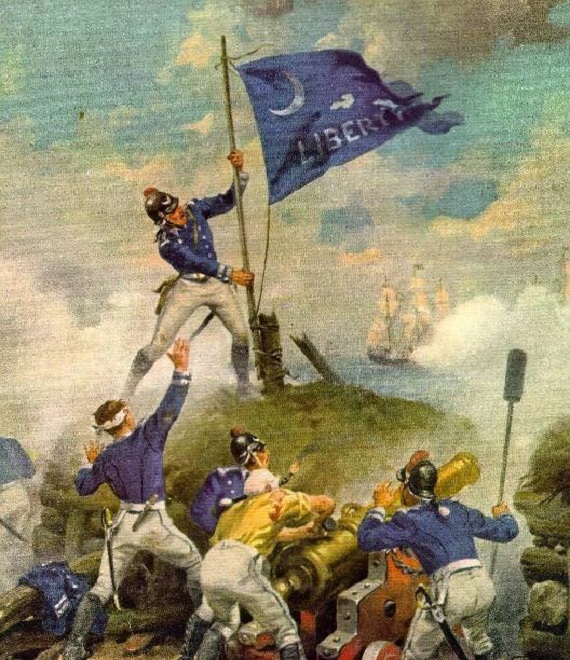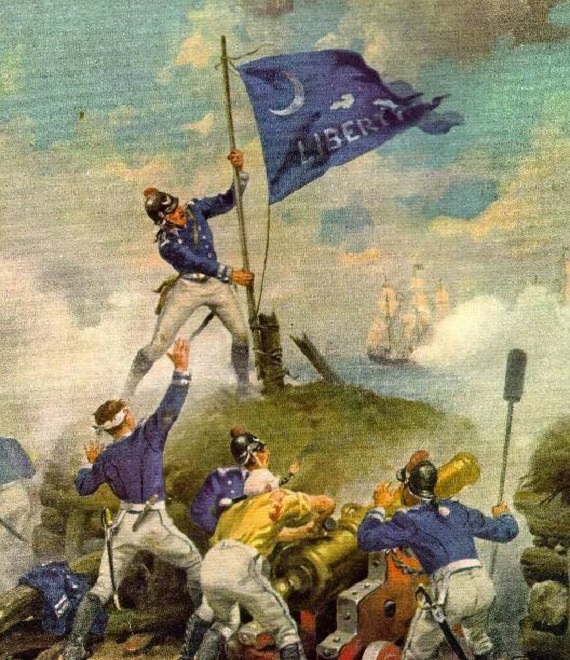Q: What can I read that can give me a serious overview of the true impact of the tariffs of 1828 and 1832 on South Carolina?
A: I think the question of the impact of the protective tariff on South Carolina is the wrong question to ask. It is something of a diversionary tactic, for reasons I will try to explain below.
The questions to ask about that period of American history are 1) was the protective tariff just? 2) was it good policy? 3) was it constitutional?. A believer in free markets and constitutionally limited government can only give a resounding NO to all these questions.
It was not just South Carolina that objected to the tariff. From the earliest national period John Taylor’s writings and John Randolph’s speeches, along with many other Southern spokesman, were eloquent and firm on the unjustness of the “protective” tariff. From 1824 on, every Southern legislature strongly condemned the tariff. The only difference was that only South Carolina was willing to go to the extent of actual nullification. This was not because South Carolina had suffered any more than others, but because South Carolina was the only State in which decisions could be made without the input of national party leaders who wanted to avoid hard issues.
From 1824 on it was apparent that the manufacturers intended a high and permanent system of tariffs, which had not been obvious before, when tariffs had been thought of as revenue measures with perhaps “incidental” protection. The term “lobbyists” was first used in America in the 1820s for the agents of the New England/Pennsylvania manufacturers who began to haunt the legislative halls and hold out inducements to congressmen. The acts of 1828 and 1832 were blatant examples of log-rolling rather than policy decisions. The latter was also deceptively presented by the Jackson/Van Buren forces as a remedy to tariff opponents.
It was not only the South that vigorously opposed the tariffs of 1828 and 1832. The Northern free market men like William Gouge and Condy Raguet exposed the tariff and approved South Carolina’s action, and public meetings of Northern merchants and craftsmen denounced the protective tariff as did Democratic conventions in many Northern States at that time and later.
Historians have tried with considerable success to divert the question to an emphasis on South Carolina. The hidden assumption is that the tariff policy is so self-evidently good that there is something peculiar about South Carolina to explain the strong opposition. It must be exhausted soil and declining prosperity (or more recently fears over slavery) that drove South Carolinians to blame their problems on others. This is just a transmission of the claims of the tariffites’ propaganda of the time. New Englanders, then as now, were extremely self-centered and self-righteous. They said in Congress that the South’s economic problems were because Southerners were, unlike them, lazy and unproductive. (Calhoun pointed out that Southerners produced almost all of the country’s foreign trade in an open market while those who complained of Southern lack of enterprise enjoyed a protected domestic market.) Many New England spokesmen said that opposition to such a self-evidently good policy was itself treason. Not nullification, mind you, but opposition to the protective tariff was in itself declared to be treasonous. The historians who concentrate on “the effects on South Carolina” work from a basic assumption that Southerners are too stupid to know their own real interests, are always wrong and deceptive in their politics, and are naturally inclined to be traitors.
So, to approach the question of the tariff as an issue of the peculiarities of South Carolina is a diversion from the larger question of the impact of the tariff on the American economy as a whole. How can any freemarketeer doubt that the impact was unjust? Even more so because it not only benefited one group of people, but it also, on phony grounds of patriotism, diverted wealth from the South to certain interests in the North in a government that was supposed to benefit all parts of the Union. It was this (far more than the slavery issue) that drove Southerners to begin to question the value of the Union. Was the North to get all the benefits and the South to bear all the burdens?
What was the impact of the tariffs on South Carolina? This is an empirical question that, like any complicated situation, can be argued all sorts of ways. It would seem to be axiomatic to advocates of free markets that a government policy that artificially raises the costs of goods for the benefit of a particular interest is harmful. But in a sense that is beside the point. What was the economic effect of the Tea Tax on the American colonists in 1775? The point was that it was an unfair imposition based on an exercise of doubted power.
You can get a good overview of the Southern case from the section on Free Trade in my The Essential Calhoun, especially Calhoun’s speech on the tariff of 1842. Also my article on “Free Trade…” in the Genovese festschrift, Slavery, Secession, and Southern History, ed. Robert Paquette.
Q: How about the constitutional question — is there really no good constitutional argument on behalf of tariffs for protection?
A: There is no question that the Constitution gave certain taxing powers for the purpose of providing the general government with a source of support. The tax on imports was the best way to do this. It was paid by the consumer to the degree of consumption of imported goods, largely luxury items or highly specialized materials and equipment. Equally there is no question that a protective tariff is anti-revenue — using a law for a different purpose than that for which the power had been granted. The Supreme Court held that it was a political question, that it could not look beneath the law itself to its intentions or effects. In the Philadelphia Convention, proposals that the new federal government have the power to lay protective tariffs and to charter corporations failed to carry. As Tom DiLorenzo has recently reminded us, the Hamiltonians cavalierly disregarded the limits on federal power in both these cases in pursuit of their mercantilist, mimic England, agenda. It is perhaps also worth pointing out in this connection that the Constitution absolutely forbade any tax on exports. (Thomas DiLorenzo, Hamilton’s Curse: How Jefferson’s Arch Enemy Betrayed the American Revolution–and What It Means for Americans Today, Three Rivers Press, 2009)
Q: And finally, do you believe nullification would have to involve convening a special convention of the people, or could it conceivably be carried out by a state legislature?
A: The South Carolina nullification of 1832 was enacted by a convention of the people especially called for the purpose. By the South Carolina constitution such a convention could only be called by a three/fourths majority of both houses of the legislature. The South Carolinians wanted to make it clear that the act was a high constitutional one — based on the primary sovereignty of the people — like the acts that had made the State independent in 1775 and had ratified the Constitution in 1788. However, the Kentucky and Virginia Resolutions of 1798 and 1799, which laid out the power and right of state interposition against unconstitutional federal acts, were done by the legislatures.
A couple more points. “Nullification” was a derogatory, negative-sounding term invented by the opponents of the right. The proper name is State Interposition.
The historians tell us that Nullification of the tariff by South Carolina failed and federal supremacy was vindicated. That is not quite the truth. One can make a good case that it was a success. The historians note Jackson’s proclamation against nullification but they never mention that there was a great outpouring of public opinion against Jackson’s proclamation. The proclamation raised the possibility of the coercion of the people of a State by the federal government. Many people, North and South, were more alarmed by that than they were disturbed by nullification. (By the way, Webster DID NOT win the Webster-Hayne Debate. In the Senate, the press, and public opinion, Webster was the clear loser).
Nullification was a success. To defuse the crisis, Congress in 1833 passed the Compromise Tariff by which the tariff would come down by stages over the next ten years after which it would be at a revenue-only. Not bad for a small State against the world. True, the Whigs sought to forget and violate the compromise in 1842 but they did not entirely succeed and the most free-trade tariff in our history was passed in 1846. This would not have happened if it had not been for the action of “our gallant little State.”
Q: What is the proper reply to the states which, objecting to the Virginia and Kentucky Resolutions, cited Article III, Section 2 as evidence that the Supreme Court is indeed the arbiter for disputes of power between the federal government and the states?
A: The States that took the position you cite were those deeply invested in Federalist hegemony — devoted to constructing a strong federal judiciary to control what they regarded as the evil and unenlightened masses. They said so very plainly. Was not this position thoroughly repudiated in the Kentucky and Virginia documents themselves, followed immediately by the triumph of the “Principles of 1798” party in the elections?
SOURCE: From LewRockwell.com February 8, 2010







